In the dynamic landscape of education, each child’s learning journey is as unique as they are. As a parent or home educator, guiding this journey towards success can be both exciting and challenging. This comprehensive guide is designed to equip you with practical strategies and detailed guidance to navigate the realm of individualised education effectively. From understanding your child’s needs to fostering collaboration with educators, we’ll cover every aspect to ensure your child thrives academically and personally.
Discover Our SENCO (Special Educational Needs Coordination) Training Course – Elevate Your Skills for Individualised Education Today!
I. Understanding Your Child's Needs
Understanding how your child learns best is the first step in tailoring their education to their unique needs. Think of it like discovering their learning superpower! Here are some simple ways to identify their strengths:
Identify Learning Styles:
Does your child prefer visual aids like pictures and diagrams, or do they thrive when they hear information spoken aloud? Maybe they’re the hands-on type who loves to dive into experiments and activities.
1. Visual Learners: Your child loves to draw, doodle, or paint whenever they have free time. They enjoy creating colourful diagrams, charts, or mind maps to organise information.
2. Auditory Learners: Your child enjoys listening to audiobooks, podcasts, or music while doing chores or playing. They often repeat information aloud to themselves when studying.
3. Kinesthetic Learners: Your child is always on the move and prefers hands-on activities like building with blocks, playing sports, or exploring nature.

Assess Strengths and Weaknesses:
Take note of what your child excels at and where they might need a little extra help. It could be anything from acing math problems to struggling with reading comprehension. Here are some methods to follow:
1. Regular Observation: Set aside regular time for observing your child’s engagement and progress in various learning activities.
2. Use Checklists: Use simple checklists or rubrics to track performance and progress in specific subjects or skills.
3. Observe During Everyday Activities: Pay attention to problem-solving, critical thinking, and communication skills during everyday activities.
4. Engage in Conversation: Ask open-ended questions to encourage reflection and self-assessment, such as “What did you learn in school today?” or “What was challenging about that assignment?”
5. Review Assessments and Feedback: Review assessments, quizzes, and teacher feedback to identify areas for improvement.
6. Seek Input from Teachers: Communicate regularly with your child’s teachers to gain insights into their academic progress and behaviour.
7. Encourage Self-Assessment: Encourage your child to reflect on their own learning and performance through self-assessment.
8. Utilise Technology: Take advantage of educational technology tools and apps for assessment and progress tracking.
Child Psychology Diploma
II. Developing a Personalised Learning Plan
Crafting a personalised learning plan is crucial for addressing your child’s individual needs and maximising their potential:
Set Specific Goals:
1. Set Specific Goals: Start small and build from there. Whether it’s mastering times tables or improving writing skills, setting clear goals gives you and your child something to aim for.
2. Tailor Curriculum and Resources: Look for materials and activities that match your child’s interests and learning style. Remember, it’s not just about what they learn but how they learn it.
3. Strategies for Accommodating Different Learning Styles: Mix things up to keep learning fun and engaging. Try incorporating visual aids, hands-on projects, and interactive games into their lessons.
III. Implementing Individualised Education at Home
Creating a learning-friendly environment at home doesn’t have to be complicated. Here’s how you can set the stage for success:
1. Establish a Conducive Learning Environment: Find a quiet corner where your child can concentrate without distractions. It could be a cosy nook in their bedroom or a dedicated study area in the living room.
2. Utilise Technology and Real-World Experiences: Embrace the power of technology to supplement traditional learning materials. Educational apps, online resources, and virtual field trips can all enrich your child’s learning experience.
IV. Supporting Your Child's Progress
As your child embarks on their learning journey, it’s important to be there every step of the way:
1. Monitor and Track Growth: Keep an eye on your child’s progress to celebrate their successes and address any challenges that arise.
2. Provide Constructive Feedback and Encouragement: Offer praise and encouragement to boost your child’s confidence and motivation. Remember, it’s not just about getting the right answer but about trying their best.
3. Adjust Learning Plan Based on Progress: Be flexible and willing to adapt your approach as needed. If something isn’t working, don’t be afraid to try a different strateg or approach.
V. Collaboration and Communication
Working together with teachers and other parents can make all the difference in your child’s education:
1. Importance of Open Communication: Stay in touch with your child’s teacher to share insights, ask questions, and address any concerns.
2. Advocate for Your Child’s Needs: Be your child’s biggest cheerleader and advocate for the support and resources they need to succeed.
3. Build a Support Network: Connect with other parents to share ideas, swap tips, and offer each other support and encouragement along the way.
Special Educational Needs Coordination Level 5
VI. Overcoming Challenges
No educational journey is without its challenges, but with a little creativity and perseverance, you can overcome anything:
Addressing Common Obstacles: Whether it’s finding time for homework or dealing with a subject your child finds challenging, there are solutions out there. Don’t be afraid to reach out for help and support when you need it.
VII. Celebrating Successes
Every achievement, no matter how small, deserves to be celebrated! Here’s how you can recognise and applaud your child’s progress:
1. Recognise Achievements: Take the time to acknowledge your child’s accomplishments, whether it’s mastering a new skill, improving their grades, or showing kindness to others. Celebrate their successes with praise, high-fives, and maybe even a special treat or activity.
2. Reflect on Progress and Growth: Pause and reflect on how far your child has come since they began their educational journey. Look back on their achievements and milestones with pride, and remind them of the progress they’ve made.
3. Inspire Confidence and Resilience: Encourage your child to believe in themselves and their abilities. Remind them that setbacks are a natural part of learning and that each challenge they overcome makes them stronger and more resilient.



Summing up, as a parent or home educator, you play a vital role in shaping your child’s educational journey. By understanding their unique learning needs, creating a personalised learning plan, and providing a supportive environment, you can help them thrive academically and personally. Remember to celebrate their successes, no matter how small, and to stay flexible and adaptable as their needs evolve. With patience, perseverance, and plenty of love and encouragement, you can empower your child to reach their full potential and achieve their dreams. Browse All Our Courses today to discover more ways to support your child’s educational growth and unlock a brighter future filled with learning, growth, and endless possibilities!
- All Courses
- QLS Endorsed Single Course798
- Mega Bundles366
- Management Courses329
- Technology Courses235
- Teaching Courses196
- Business Courses174
- Health Courses102
- Law Courses83
- Marketing Courses67
- Development Courses54
- Job Guarantee Programme53
- Counselling Courses38
- QLS Endorsed Single Course with Free Certificate37
- Engineering Courses21
- Creative Courses20
- Agriculture Courses6
- Regulated Courses6
- Psychology3
- Science Courses2
- 4-in-1 bundle1
- Arts Courses1




0 responses on "A Parent's Guide to Individualised Education"